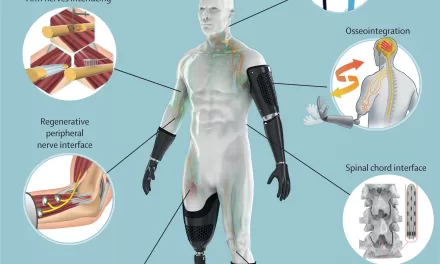EMBL Scientists Discover Potential of Dextromethorphan to Combat Lung Fibrosis
A widely-used ingredient in many over-the-counter cough syrups, dextromethorphan, may hold the key to treating lung fibrosis—a debilitating condition that has long lacked effective treatment options. Researchers at EMBL Heidelberg, in collaboration with several institutions, have identified dextromethorphan as a promising candidate for combating this progressive lung disease. Their findings were published in the prestigious Science Translational Medicine.
Understanding Lung Fibrosis
Lung fibrosis, which results from excessive scarring in the lungs, is associated with various serious health complications, including difficulty breathing and organ failure. The condition is caused by the accumulation of fibrillar collagen in the lung tissue, leading to stiffness and reduced oxygen absorption. It most commonly affects older adults and can be triggered by environmental irritants, such as asbestos, coal dust, and mold, as well as by long-term diseases like tuberculosis and autoimmune disorders such as lupus and rheumatoid arthritis.
According to the World Health Organization (WHO), approximately 761,000 people in Europe suffer from lung fibrosis, with 25,000 deaths and a loss of 496,000 healthy years annually due to the disease. Despite its prevalence, no cure for lung fibrosis currently exists.
Dextromethorphan: A Surprising Potential Treatment
The EMBL research team, led by Muzamil Majid Khan, set out to find new treatments for lung fibrosis, especially given the lack of available therapies. The team repurposed existing FDA-approved drugs, including dextromethorphan, a widely-used ingredient in cough syrups. Through cutting-edge research methods, the scientists discovered that dextromethorphan could significantly reduce collagen production, which is responsible for the scarring process in lung fibrosis.
“After learning that lung fibrosis has no cure available, I wanted to discover novel drugs for this condition,” said Khan, a research associate at EMBL and the paper’s first author.
Innovative Drug Screening Method
To identify potential treatments, the EMBL team screened a library of FDA-approved drugs using an innovative high-throughput microscopy technique known as the “scar-in-a-jar” assay. This in vitro system simulates the collagen formation process, providing researchers with a way to study and test the effects of different drugs on lung fibrosis.
“We used advanced technologies like proteomics, transcriptomics, and microscopy to understand how dextromethorphan works,” explained Khan. “This allowed us to pinpoint its action in inhibiting collagen trafficking and secretion, a key driver of fibrosis.”
Preclinical Success and Future Trials
The researchers further tested dextromethorphan’s effects in mouse models and 3D human lung tissue cultured in the lab. These preclinical results were promising, showing a reduction in lung fibrosis symptoms. As part of a collaboration with the Translational Lung Research Center (TLRC) Heidelberg and the German Center for Lung Research (DZL), the team is now preparing to advance the research into Phase II clinical trials to assess the drug’s effectiveness in human patients.
“We are currently planning clinical trials with the Thoraxclinic in Heidelberg to evaluate if these promising findings translate into effective treatment for humans,” said Rainer Pepperkok, EMBL group leader and senior author of the study.
Looking Ahead
While these discoveries offer a glimmer of hope for treating lung fibrosis, researchers stress that this is still early-stage research. The team plans to further investigate the mechanisms of dextromethorphan, aiming to identify its specific targets within cells and potentially develop improved versions of the drug.
“This is a foundational discovery,” Pepperkok added. “It holds exciting potential for treating lung fibrosis, but we are only beginning to understand its full impact. The next step is to explore how we can optimize and apply this drug to real-world treatment.”
This breakthrough opens new possibilities for tackling lung fibrosis, a disease that currently has no cure, and underscores the value of repurposing existing medications for innovative new uses.
Reference: Khan, M. M., et al. “Dextromethorphan inhibits collagen and collagen-like cargo secretion to ameliorate lung fibrosis.” Science Translational Medicine, 18 Dec 2024, DOI: 10.1126/scitranslmed.adj3087.












